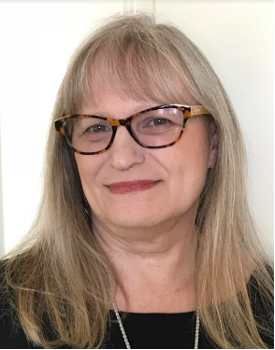
We are Ann Price of Community Evaluation Solutions and Susan Wolfe, of Susan Wolfe and Associates. We are both community psychologists and bring our community psychology values to everything we do. We do a lot of work with community coalitions primarily through training and evaluation. The primary values that ground our work include: respect for diversity among peoples and settings; active collaboration with community members; prioritization of community members’ needs and preferences; and change strategies that influence multiple levels to foster settings that promote well-being. Here are three examples of how we do this.

- In our work with coalitions, we use a consumer centric and empowerment approach rather than a top-down approach. We are guided by Sherry R. Arnstein’s Ladder of Citizen Participation to ensure authentic partnership and citizen control rather than tokenism and nonparticipation.
Rad Resource:
Arnstein’s Ladder of Participation. https://www.citizenshandbook.org/arnsteinsladder.html
Rad Resource:
Wolfe, S.M. & Price, A.W. (2019). Partnering for social change: Collaborating with clients and communities. In N. Martinez-Rubin, A.A. Germuth, & M.L. Feldman (Eds.), Independent Evaluation Consulting: Approaches and Practices from a Growing Field. New Directions for Evaluation, 164, 89-100.
Hot Tip:
Using focus groups, community surveys, and community listening sessions exclusively are tokenism. These methods of gathering community feedback allows people to speak, but fails to include them in the decisions that result. Instead, whenever possible, we ensure there is enough time for projects to be truly participatory by identifying and engaging community members, building capacity for leadership, developing a common vocabulary, and co-developing inclusive and empowering structures and processes.
2. We work with our clients to develop evaluation processes that provide them with tools and knowledge to increase their evaluation capacity. We provide on-going technical assistance with the goal of working to reduce their dependence on us. We also respect our clients and community members as experts. For example, we never develop a strategy or logic model, or any other evaluation process without the client’s involvement.
Rad Resource:
M. Baizerman, D.W. Compton, & S.H. Stockdill (2002). The Art, Craft, and Science of Evaluation Capacity Building. New Directions for Evaluation, Wiley.
Rad Resources:
More information about community psychology approaches and methods can be found at https://www.communitypsychology.com and in Scott, V.C. & Wolfe, S.M. (Eds.). (2015). Community Psychology: Foundations for Practice. Sage Publications. http://dx.doi.org/10.4135/9781483398150.
3. The AEA Guiding Principle of Common Good and Equity states that “Evaluators strive to contribute to the common good and advancement of an equitable and just society.” We incorporate methods to identify and address racism, inequities, and colonizing practices. Critical community psychology recognizes that human suffering is a result of individual, group, community, and government acts in addition to social, cultural, and institutional arrangements and are determinants of social justice.
Rad Resource:
Wolfe, S.M., Long, P.D., & Brown, K.K. (2020). Using a principles-focused evaluation approach to evaluate coalitions and collaboratives working toward equity and social justice. In S.M. Wolfe, A.W. Price, & K.K. Brown (Eds.), Evaluating Community Coalitions and Collaboratives. New Directions for Evaluation, 165, 45-65.
Rad Resource:
More information about Critical Community Psychology can be found at: this link: Critical Community Psychology
The American Evaluation Association is celebrating CP TIG Week with our colleagues in the Community Psychology Topical Interest Group. The contributions all week come from CP TIG members. Do you have questions, concerns, kudos, or content to extend this aea365 contribution? Please add them in the comments section for this post on the aea365 webpage so that we may enrich our community of practice. Would you like to submit an aea365 Tip? Please send a note of interest to aea365@eval.org. aea365 is sponsored by the American Evaluation Association and provides a Tip-a-Day by and for evaluators.

I love that you develop evaluation processes that provide your clients with tools and knowledge to increase their evaluation capacity. I think it is a good thing you respect your clients and community members as experts. I believe community psychology is essential because researching community problems and assessing individual needs in underserved communities need assistance. Finding ways to help disadvantaged or disenfranchised individuals feel more connected with their local communities understanding social issues among minority groups.